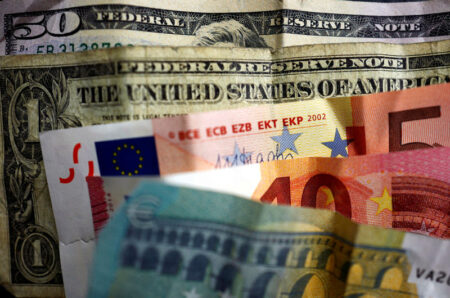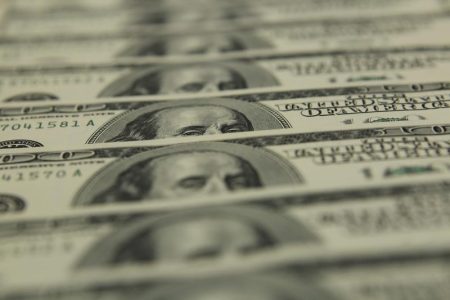By Gertrude Chavez-Dreyfuss
NEW YORK (Reuters) -The dollar rose to three-month peaks on Tuesday, after data showed U.S. inflation rose more than expected in January, reinforcing expectations that the Federal Reserve will hold interest rates steady in March.
The greenback also topped 150 yen for the first time since November following the data.
Tuesday’s data showed that the Consumer Price Index (CPI) rose 0.3% on a monthly basis in January, above the 0.2% increase expected by economists polled by Reuters. On a year-on-year basis, it gained 3.1% versus the 2.9% estimated growth.
Excluding the volatile food and energy components, the CPI increased 0.4% last month after rising 0.3% in December. The core CPI advanced 3.9% year-on-year in January, matching December’s increase.
The greenback surged to 150.88 yen, a three-month peak. It was last up 0.9% at 150.75 yen, on track for its best daily gain in 1-1/2 weeks. That 150 level is likely to trigger further jawboning from Japanese officials in an attempt to support the currency, analysts said.
The yen, which has tumbled more than 6% against the dollar so far this year, is under persistent pressure as investors pare back their expectations of the scale and pace of the Federal Reserve’s easing cycle.
The turned positive after the inflation data, touching a three-month high of 104.95. It was last up 0.7% at 104.89, on pace for its best one-day gain since Feb. 2.
“The key message from today’s CPI is that it’s slowing but less than expected,” said Dec Mullarkey, managing director, at SLC Management in Boston. “The reading supports the Fed’s decision to continue to wait for more assurance that inflation is well contained.”
Federal funds futures on Tuesday had priced in no rate cut in March and a lower than 50% chance of easing in May, according LSEG’s rate probability app. The first rate cut by the Fed is now expected to occur at the June meeting, with a roughly 80% probability.
The market has also factored in about three rate cuts this year, in line with the Fed’s rate forecasts, or what is called the “dot plot” released back in December.
“That alignment should help reduce the risk of nasty surprises and volatility spikes later in the year,” said SLC’s Mullarkey.
In other currencies, the euro dropped 0.6% to $1.0707, after earlier falling to $1.0700, the lowest since mid-November. In cryptocurrencies, bitcoin touched its highest since December 2021 at $50,383, but fell below $50,000 after the CPI data. It was last down 0.9% at $49,389. The world’s largest cryptocurrency has risen nearly 18% this year, helped by last month’s regulatory nod for U.S.-listed exchange traded funds designed to track its price.
Next up on the economic calendar is the U.S. retail sales report on Thursday. Economists expect a 0.1% decline for January, from a 0.6% rise in December, a Reuters poll showed.
Recent retail sales figures have consistently exceeded forecasts for six straight months, highlighting the resilience of the U.S. consumer, wrote Fawad Razaqzada, market analyst at City Index and FOREX.com in London.
He added that if U.S. retail sales continue to suggest economic resilience, “expect continued gains for the U.S. dollar.”
Read the full article here












